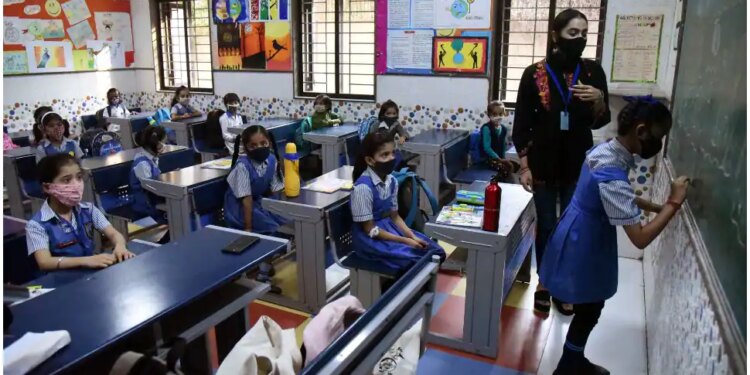Chandigarh: In a bid to strictly enforce the implementation of Punjabi as a compulsory subject for all students of first to tenth class across the state, the Punjab Cabinet on Sunday (November 7) approved an amendment in Punjab Learning of Punjabi and other Languages Act, 2008.
After the amendment, the penalties will increase from Rs 25,000, Rs 50,000 and Rs 1 Lakh to Rs 50,000, Rs 1 Lakh and Rs 2 Lakh respectively for contravening the provisions of the said Act. The Cabinet also gave a go-ahead to introduce this bill in the current session of Punjab Vidhan Sabha.
According to a spokesperson of the Chief Minister`s Office, any school, which contravenes the provisions of this Act or the rules, made thereunder for a month for the first time, shall be liable for a penalty of Rs 50,000.
Provided that if such a school contravenes the provisions of this act or the rules made thereunder for a month for the second time, then it shall be liable for a penalty of Rs 1 Lakh.
Provided further that if such a school contravenes the provisions of this Act or the rules made thereunder for a month for the third time and thereafter, then it shall be liable for a penalty of Rs 2 Lakh.
Sub Section (1A) under Section 8 of the act has been inserted, where the state government is of the opinion that it is necessary or expedient to do so, for reasons to be recorded in writing, it may suitably enhance or reduce any of the penalty as specified in sub-section 1 of Section 8 of this Act by publishing a notification in the official gazette, said the Punjab Chief Minister`s Office in a statement.
Notably, the Punjab Learning of Punjabi and Other Languages Act, 2008 was enacted by the state government with the objective to provide for learning of Punjabi as a compulsory subject by all students studying in first to tenth class and for learning of other languages also and for the matters connected therewith or incidental thereto.
Sub-section 1 of Section 8 of the said act relates to the imposition of penalties upon schools that violate the provisions of the said act.
Further, in clause (e) of Section 2 of the said act, the word `school` has been defined as `School` includes any primary school, middle school, high school and senior secondary school, established and maintained by the state government or a local body or panchayat, society or trust or such other schools as may be notified by the state government from time to time.
It may also be mentioned that in pursuance of the aforesaid definition, the state government vide notification dated March 22, 2010, has already notified that Central Schools, Navodya Schools and all schools affiliated with the Central Board of Education and Indian Council of Secondary Education situated in the state of Punjab to be the Schools for the purposes of the said Act.
With the passage of time, it is felt that the aforesaid penalties are on the lower side. Therefore, in order to achieve the objectives for which the act in question was enacted by the state government and also for more effective implementation of the said Act, a need has arisen to enhance the said penalties as specified in sub-section 1 of Section 8 of the Act.
The cabinet also approved the amendment in the Official Language Act, 1967 by including Section 8 (3) under Section 8 (d) of the Punjab State Language (Amendment) Act, 2008 according to which in addition to punishment the provision of penalty against officers or officials who do not conduct official business in the Punjabi language has been made, said the Punjab Chief Minister`s Office in a statement.
Accordingly, the provision has been made against the officer or official for violating the provisions of Punjab State Language Act, 1967 and Amendment Act, 2008 and various notifications made thereunder.
As per this provision, a first-time guilty officer or official can be fined Rs 500, as per the recommendations of the competent authority i.e. Director, Language Department, Punjab.
The second offence carries a fine of upto Rs 2,000 and the third offence carries a fine to the extent upto Rs 5,000. Such penalty shall be levied by the concerned Disbursement and Expenditure Officer on the salary of the officer or official. Provided that before the imposition of such fine concerned officer or official shall be given an opportunity to be heard.
Live TV





